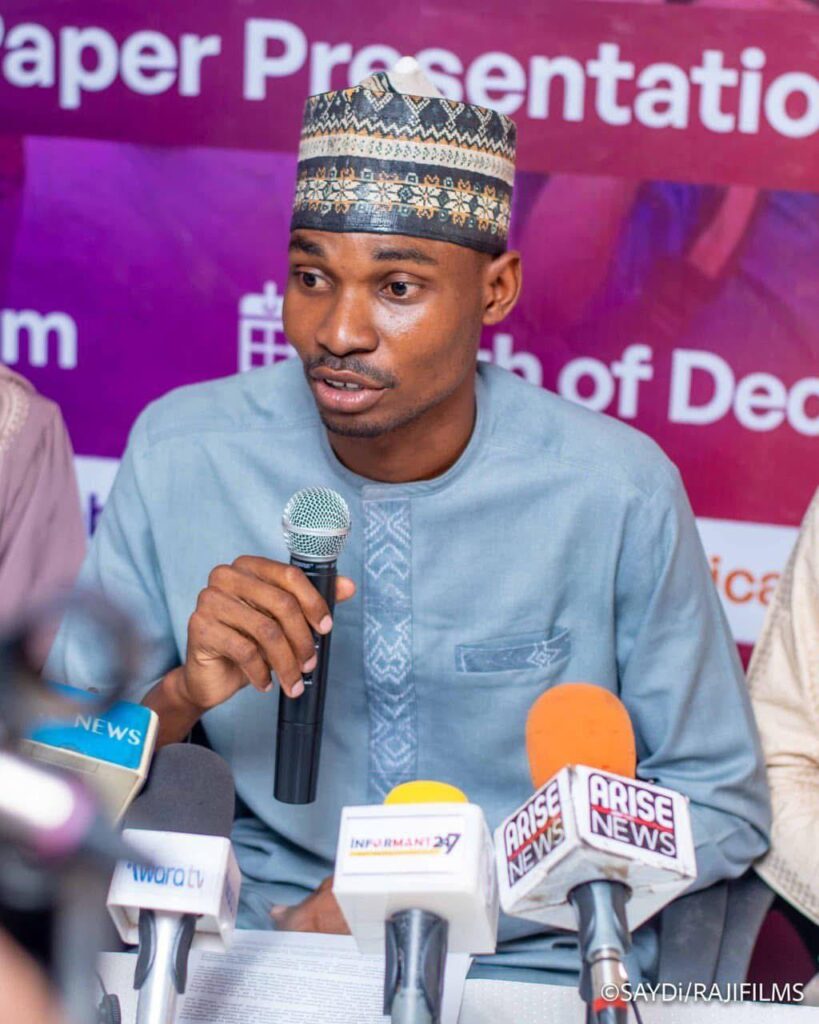By Abdulkareem O. Abdullateef
A fundamental truth is that when women thrive, societies flourish. Globally, gender equality is an age-long critical discourse, affecting economic growth, political representation, and social stability. Meanwhile, women predominantly face systemic barriers that limit their potential. In many parts of the world, Nigeria inclusive, women struggle against various marginalization, not limited to wage disparities, underrepresentation in leadership, as well as restricted access to essential resources such as education and healthcare. The question remains: how do we attain equality among gender groups while also addressing these barriers against women’s accelerated progress toward a more equitable society?
At Saving African Youths Dreams Initiative (SAYDi), weunderstand the need to recognize the urgency of viewing women as equals and dismantling structures that perpetuate their marginalization. Our drive towards an inclusive and equitable economy of persons was borne from his interaction with variousindividuals championing gender equality and inclusivity. A good example is Dr. Amina Salihu, the Founder, Habiba Dangana (Hadis) Foundation, who led advocacy against Sexual and Based Violence across states in Nigeria by Popularizing the Violence Against Persons Prohibition Act across states, (A program in which SAYDi was a partner).
Non-arguably, one of the most significant challenges women face globally is the leadership gap. Women hold only 27% of parliamentary seats globally and occupy less than 10% of executive leadership positions (crsreports). In the Nigerian context, the disparity statistics are more pronounced with women currently holding only 4% of the National Assembly seats. Also, their participation in state and local governments remains critically low. As reported by Invictus Africa, only 7 women were among 43 appointed Ministers in 2019, while 7 women and 72 men occupied principal positions in the Senate in 2019. Also, in the last elections (2023), only 4 (3.7%) out of the 109 Senators are women, and only 17 (4.7%) out of the 360 members of the House of Representatives are women (invictusafrica.org).
Unfortunately, there has been repeated rejection of the Gender Equality Bill by Nigeria’s National Assembly which explains the existence of systemic barriers to women’s political participation. These primordial factors hinder gender-inclusive governance, at the expense of better policymaking and economic outcomes. Therefore, addressing these disparities requires deliberate actions aimed at implementing gender quotas, investing in leadership training for women, and fostering inclusive political environments that encourage female participation at all levels of governance. This is why advocacy groups and Non-governmental Organizations like Hadis Foundation, Women Advocates Research and Documentation Centre (WARDC), ElectHER etc. have continued to push for legislative reforms to ensure equitable representation.
The gap in the economic and investment landscape is also noteworthy. Globally, women earn approximately 20% less than men for the same work (UN Women). Women constitute 41% of micro-business owners but receive less than 10% of available credit from financial institutions. Women earn about 32.7% less than men in sub-Saharan Africa which discloses a significant pay disparity (borgenproject.org). Nigerian men also earn more than women in many jobs, further revealing the reality of the gender pay gap (genderdata.worldbank.org). It is therefore obviously clear that many female entrepreneurs struggle with accessing capital due to deep-rooted biases among financial institutions which is a bias that has only thrived in the absence of gender-sensitive economic policies.
Bridging this gap requires targeted financial programs, including low-interest loans and grants for women-owned businesses, and legal frameworks that foster equal pay for equal work. Therefore, comprehensive strategies that focus on financial literacy, mentorship, and access to markets are needed to empower women economically. Governments, private institutions, financial institutions, and policymakers must therefore, collaborate to fashion financial products specifically for women and enforce policies that promote pay equity.
Moreover, the issue of gender-based violence (GBV) a significant barrier to women’s advancement cannot be over-emphasized. In Nigeria, more than 30% of women in the age brackets 15-49 have experienced physical or sexual violence in their lifetime (HumAngle). The insurgency in Northern Nigeria has exacerbated these challenges, with thousands of women and girls being subjected to displacement, abductions, and sexual violence. While Nigeria’s Violence Against Persons Prohibition (VAPP) Act represents progress, its implementation across states cannot be termed as consistent yet, and this leaves many women without legal protection or access to justice. Therefore, there is a need to strengthen law enforcement and increase funding for survivor support programs, while also ensuring the full implementation of legal protections necessary to address GBV. Moreover, men are also expected to be engaged as allies in the fight against gender-based violence, as achieving gender equality is not possible without societal-wide commitment.
Talking of advancements in technology and digitalization of today’s dispensation which offers new avenues for education, business, and social advocacy; it has also exposed women to online harassment, privacy violations, and economic exclusion. In Nigeria, only 35% of women have internet access compared to 55.5% of men, which is a substantial digital divide (World Bank Gender Data). Women are also many times the victims of cyber harassment, including non-consensual sharing of private images, and other blackmailing attempts which often lead to severe psychological and social consequences. Bridging this gap requires urgent investment in digital literacy programs tailored to women, accompanied by stricter cybercrime laws that protect against online abuse. In short, the ethical use of technology must be a priority, ensuring that digital spaces are safe and inclusive for all.
However, despite these challenges, women continue to break barriers and drive change. Organizations like MacArthur Foundation and Invictus Africa have been instrumental in promoting gender equality, and inclusion and amplifying women’s voices (MacArthur Foundation). The growing number of female-led startups, social movements, and policy advocacy groups proves that when given the opportunity, women excel. From the women pioneering grassroots initiatives to those occupying top positions in businesses and politics, their contributions are invaluable. It becomes imperative that these success stories are not only celebrated but also supported through policy changes and investments, knowing fully that investing in women is not merely a moral imperative but a strong catalyst for socio-economic development.
As we commemorate International Women’s Day 2025, the call to “Invest in Women: Accelerate Progress” resonates more profoundly than ever. We can pave the way for a more equitable, inclusive, and prosperous society by addressing leadership disparities, economic inequalities, security challenges, and the digital divide. It becomes a generic and collective responsibility of governments, private sectors, civil societies, and individuals to champion and invest in the potential of women.







